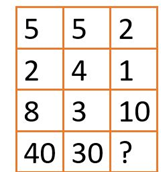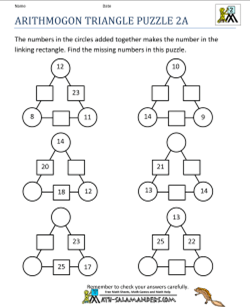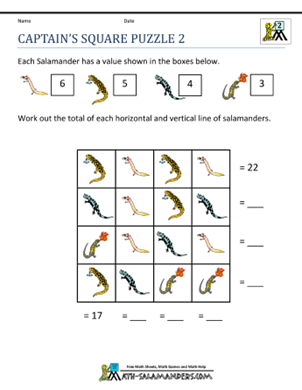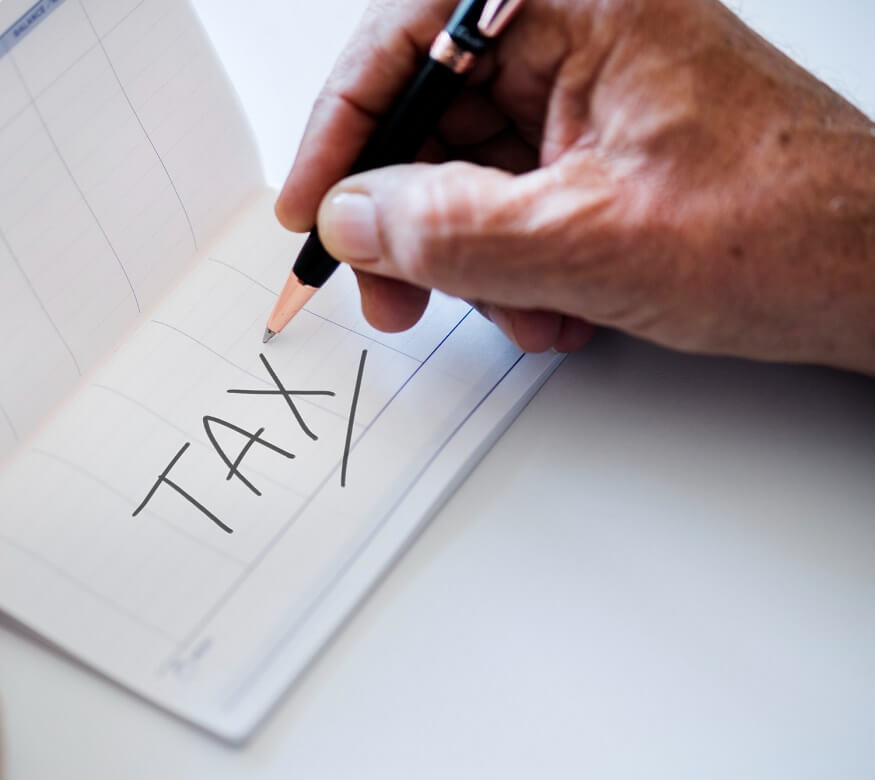Mathematics is one of the most critical subjects for long-term professional success. Most careers, such as those in engineering, commerce, management, etc. demand a high degree of proficiency in mathematical skills. Unfortunately, mathematics is also a subject that emerges as an uphill challenge for most students. Stories of children suffering from a phobia of maths are far too common. How do we make sure our kids do not develop this fear?
Solving maths puzzles could be an answer. Puzzles are fun ways of exercising our brains. Learning while also having fun. While engaging in puzzles, fun is the foremost element while learning is more subtly packaged deep inside. Kids as early as in grade 2 can engage in maths puzzles which can help make maths fun for them and take away any sort of phobia towards this very important subject. This article presents some interesting maths puzzles that grade 2 children can easily engage in.
Also Read: Why Studying Maths is Important for Children
Find me
Kids can start with simple find-me games wherein a situation is given to them and they need to find the number in question.
For example, I am greater than 0 but less than 10. I am equal to the sum of the sides of two squares.
Answer = 8
Missing number
A logical series of numbers is represented pictorially with one of the numbers missing. The kids need to first understand the logical pattern and then identify the missing number.
For example:

Answer: 10
Another example, A triangle formation with the three corners having three numbers, and the three edges having another set of 3 numbers. These numbers need to be arranged such that the numbers in the circles added together make the numbers on the edges connecting those circles. The challenge for the kids is to find the missing numbers.

Complete the equation
An equation is given with one of the numbers missing. Kids are expected to find the missing number such that it correctly completes the equation.
For example: 17 + 9 – __ = 14
Answer: 12
Time-based puzzles
Time-based puzzles involve an understanding of both time and mathematics.
For example, Ravi went to play at 2 p.m. and came back after 3.25 hours. What was the time when he came back?
Answer: 5:15 pm
A slightly more complex puzzle can be created with age combinations. For example, As of today, Suresh is double the age of his son. Five years ago Suresh was three times the age of his son. What is the age of Suresh and his son as of today?
Answer: Suresh is 20 years old and his son is 10 years old.
Counting based puzzles
Counting is an essential mathematical operation for grade 2 students. To make counting fun, kids can be asked to count objects in their surroundings. For example, they count the coaches of a passing train, the number of buses that pass every minute in front of their house, the number of banyan trees in the garden, or the number of birds they can spot from their balcony. This would not only make counting fun but also engage them closely with nature and their surroundings.
Also Read: 15 Hands- On Math Activities for Preschoolers
Money matters
Instilling a sense of money is key to a child’s development. This can be creatively combined to also develop basic mathematical skills such as counting, addition, subtraction, multiplication, and division. For example, If we divide 90 rupees equally between three brothers, Rohan, Rohit, and Ronak, how much does each of them get? Answer: 30
Another example is Rohan had 30 rupees with him. He bought 2 samosas for 10 rupees each. How much does he have left? Answer: 30 – 2*10 = 10
Coins and Notes
Another puzzle-based activity to help develop a sense of money along with building basic mathematical skills is identifying and counting real money. Provide kids with a variety of coins and currency notes. Ask them to add them up, arrange them in increasing order of denomination, and do various other tasks such as taking out an amount of 27 Rs from their pile of money that they have.
Shapes
An understanding of shapes can be smartly combined with mathematical prowess to make it fun for grade 2 kids. For example, basic-level puzzles could start by counting the number of sides of geometrical shapes such as triangles, squares, hexagons, etc. Difficulty levels can be upgraded to ask kids to count the number of shapes they see in a picture. For example, count the number of black squares on a chessboard. The degree of difficulty can be further enhanced by asking them to count the number of squares of all sizes on a chessboard.
Board games
Board games such as Snakes and Ladders involve numbers, counting and addition while in play. Kids love to engage in such games and they can also help in developing mathematical skills in grade 2 children.
Also Read: Top 10 Ways to Utilise Maths Formulas in Day-to-Day Life
Captain’s Square Puzzle
Captain’s square puzzles involve different shapes that represent a particular number. Kids need to decipher what number each shape represents.

Quadra’s Operation Puzzle
In this type of puzzle, the kids need to find the missing mathematical operation that completes a mathematical equation correctly. For example,
(3 __ 5) + 19 = 34
Answer: 3 x 5 + 19 = 15 + 19 = 34
Sudoku
Sudoku is another number-based fun puzzle that children usually find extremely engaging. Sudoku involves an arrangement of numbers in a matrix with a few numbers missing. The numbers are arranged such that all numbers 0 to 9 must find a place in the matrix. Kids need to figure out the missing numbers.
Also Read: Who invented Zero First: History and Facts
Newton’s Crosses Puzzle
This is similar to the crossword puzzle. It comprises a set of numbers placed in rows and columns. The numbers need to be arranged in a way such that they add to the same total.
For example:

Kids at EuroSchool are regularly exposed to more such fun mathematical puzzles which completely makes them at ease with a seemingly complex subject of mathematics. Our students stand out from others in their mathematical ability which gives them a head start in a variety of future careers and professions.











